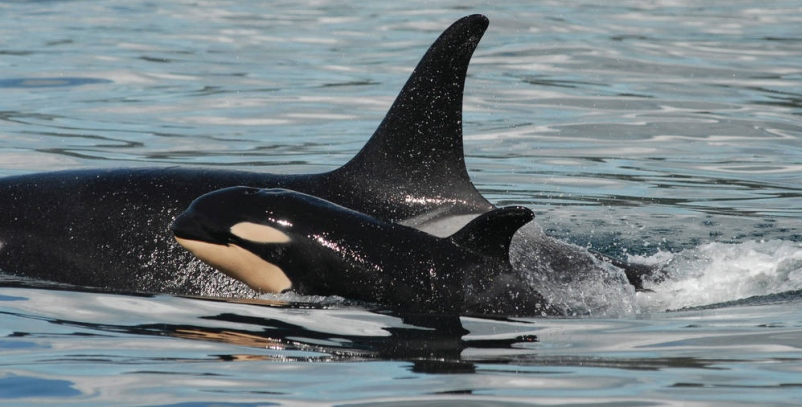||| FROM TIMES COLUMNIST (BRITISH COLUMBIA) |||
Environmental groups are worried that the U.S. Navy’s activity in southern resident killer whale habitat spells trouble for the endangered animals.
The navy has had authorization for decades to conduct testing and training in the waters of the Pacific Northwest, including Juan de Fuca Strait and Puget Sound. The previous permit, which authorized activities such as testing and training with sonar, firing torpedoes and dropping bombs from aircraft, was set to expire this month.
The renewed authorization gives the navy permission to conduct activities that could result in 51 incidents that disturb a southern resident killer whale’s behaviour each year, up from two per year previously. The authorization expires in November 2027.
Scientists and environmental groups are worried about the impact on the 74 endangered southern resident killer whales, which live along the West Coast from the B.C.-Washington border to California.
Deborah Giles, a research scientist at the University of Washington’s Center for Conservation Biology, previously told the Times Colonist the navy’s activities have the potential to disrupt the whales’ foraging, breeding, socializing and resting habits.
“When you’re talking about a population that is desperate for food and nourishment, any sort of disruption in foraging is something to take seriously,” Giles said, adding the whales could be forced to travel out of their habitats for food, which is already scarce.
READ FULL ARTICLE: https://www.timescolonist.com/news/local/u-s-navy-gets-ok-for-increased-disturbance-of-orcas-1.24245026
PHOTO: In this photo provided by the Center for Whale Research, a newborn orca calf that researchers estimate is less than a week old, surfaces beside its mother, known as J16, as they swim Wednesday, May 2, 2007, near San Juan Island, Wash. The calf, who has been named J42, displays the orange coloring common to baby orcas. (AP Photo/Courtesy the Center for Whale Research)
**If you are reading theOrcasonian for free, thank your fellow islanders. If you would like to support theOrcasonian CLICK HERE to set your modestly-priced, voluntary subscription. Otherwise, no worries; we’re happy to share with you.**









I fail completely to understand why the Navy has to test its weapons in killer-whale critical habitat when there is far more territory in the Pacific Ocean.
SRKW Orcas are officially listed as Federally Endangered. This issue needs to be carried by our congressional reps. Hopefully the new administration will be more amenable, but they will have lots on their plate. We need to flip the senate.
Michael Riordan, I completely agree with you. Remember Tahlequah, who carried her dead calf 1,000 miles over 17 days? If we didn’t learn from that, we as a species have learned nothing.
Pray for all life in the Oceans. And, remember, WE are the Caretakers of the land and waters. We are failing miserably.
Ah-HO Mitaquisi (All My Relations)
Spirit Eagle
Help. There is no rationale. the Navy does what it wants and we are supposed to follow their tendentious press releases to the gAVE Orcas are , in what Desmond Tutu called the most obscene phraswe in the English language, \acollateral damage..Bext up, your internet.